6th International Conference – Seattle 2019
Advanced Integrative Conference
Caring for the Patient in Across the Cancer Spectrum
The integrative care of the patient with cancer can become complex and overwhelm the most experienced clinician. After three decades working with cancer patients Dr. Anderson has broken down the process into three distinct, but related, phases which help the patient and clinician understand the importance and appropriateness of each phase of care. Each phase has different and unique needs, concerns and crossover with conventional oncology to be concerned with. By assessing the patient in the appropriate phase the therapies, concerns and crossovers with conventional oncology care can be appropriately managed and inappropriate interventions eliminated. This approach allows the clinician to prioritize care and the patient to understand why their care plan is structured as it is.
The three phases are:
- Diagnosis to Active Oncology Care
- Recovery from Active Oncology Care
- Secondary Prevention – Maintaining Remission
Topical Areas Covered
1. Diagnosis to Active Oncology Care:
- What laboratory diagnostics can be used both from standard of care and innovative lab assessments.
- What integrative therapies can be used during active chemotherapy, surgery and radiation?
- How does one deal with mitigating conventional care side effects during said care?
- What if the patient is not a candidate for conventional care, fails conventional care or cannot tolerate it – what
- are the best aggressive integrative therapies to use?
- How does one assess efficacy of any active care – when and how do we know?
- What protocols are available?
2. Recovery from Active Oncology Care:
- How can we maximize recovery from surgery, radiation and chemotherapy, or any combination thereof?
- How does an appropriate recovery plan actually lower recurrence risk for cancer?
- How long should this phase last?
- How do we assess progress?
- What specific protocols should we consider?
- If there is no remission what do we do next regarding anti-cancer and quality of life interventions?
3. Secondary Prevention – Maintaining Remission:
- What are the triggers for cancer recurrence?
- What is the latest tumor biology leading us to in preventive strategies?
- How do we assess the “non-cancer” areas of health that can silently trigger a recurrence?
- What are key strategies and protocols for this phase over time?
- How do I assess, diagnose and track all this?
The Value Proposition
3 Days Recording of lectures & Panel Discussions
All the Speaker Presentations
Clinical Take Home Notes
Conference Program & Proceedings
Follow up Conference Webinar Recordings
Five Expert Speakers
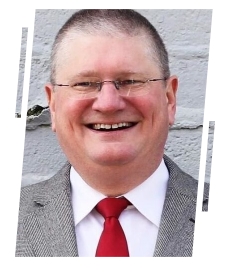
Dr. Paul Anderson, N.M.D.
Dr. Anderson is a recognized educator and clinician in integrative and naturopathic medicine with a focus on complex infectious, chronic, and oncologic illness. In addition to three decades clinical experience he also was head of the interventional arm of a US-NIH funded human research trial using IV and integrative therapies in cancer patients.
He founded Advanced Medical Therapies in Seattle, Washington, a clinic focusing on the care of patients with cancer and chronic diseases and now focuses on clinical collaborations with clinics and hospitals in the US and other countries.
He is co-author of the Hay House book “Outside the Box Cancer Therapies” with Dr. Mark Stengler as well as a co-author with Jack Canfield in the anthology “Success Breakthroughs” and the upcoming Lioncrest Publishing book “Cancer… The Journey From Diagnosis to Empowerment.”.
He is a frequent CME speaker and writer and has extended his educational outreach creating Advanced Applications in Medical Practice (AAMP) CME events in collaboration with FMI Marketing. AAMP is dedicated to bringing next level learning to healthcare professionals to enhance their knowledge and clinical skills. Former positions include multiple medical school posts, professor of Pharmacology and Clinical Medicine at Bastyr University and Chief of IV Services for Bastyr Oncology Research Center.
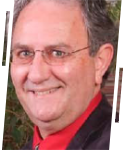
Neil McKinney, B.Sc., N.D.
Dr. Neil McKinney has been practicing since 1985. He has extensive experience with integrative cancer care as well as naturopathic medicine for a variety of health concerns and ailments. His passion for treating cancer began when he was involved with cancer research in the 1970s. He is a founder and a professor of Naturopathic Oncology at the Boucher Institute of Naturopathic Medicine in New Westminster, British Columbia, teaching oncology to 4th year naturopathic students. Dr. McKinney is a pioneer and leader in naturopathic integrative cancer care in the country, with patients all over the world and highly sought after from patients and physicians. He has written four books on Naturopathic Cancer Care; Naturally There’s Hope, Naturally There’s Always Hope, as well as 1st, 2nd and 3rd editions of Naturopathic Oncology: An Encyclopedic Guide For Patients & Physicians.
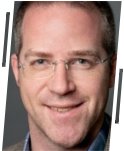
Dave Allderdice, N.D., FABNO
Dr. Allderdice graduated from NUNM in 2008, followed by 2 years of residency and one year on staff at Cancer Treatment Centers of America in Philadelphia, PA. He completed his board certification in naturopathic oncology in 2011 and moved back to his native Portland, OR to start private practice. In addition to building a successful integrative cancer-specific private practice, Dr. Allderdice is also a former OncANP board member, directs an oncology residency, sits on the OncANP residency committee, and teaches a class on integrative oncology research at Helfgott Research Institute at NUNM. Dr. Allderdice has been fasting periodically for his own health since 2004 and implemented guided fasts into his practice 5 years ago.
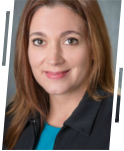
Michelle Niesley, ND, MS, FABNO
Dr. Niesley earned her doctorate in Naturopathic Medicine at Bastyr University, Seattle, WA, in 2001. She subsequently completed a two-year, hospital-based residency at Cancer Treatment Centers of America in Chicago, Illinois. In 2005, Dr. Niesley obtained a Masters in Evaluative Clinical Sciences, with an emphasis on biostatistics and epidemiology, from Dartmouth College. Dr. Niesley spent years working at the Raby Institute for Integrative Medicine at Northwestern in Chicago as a clinical researcher and as the Co-Director of Integrative Medicine Research. She is a previous member of the Board of Directors for the American Association of Naturopathic Physicians and is a member of the Oncology Association of Naturopathic Physicians.
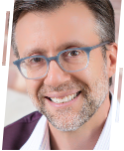
Josh Trutt, M.D.
Board-certified in Emergency Medicine and a member of the Alpha Omega Alpha Medical Honor Society. Dr. Trutt is the Co-Founder and Chief Medical Officer of Tribeca Wellness Collective, a lifestyle medicine brand focused on longevity and wellness. He has practiced for over 15 years in trauma centers and children’s hospitals in New York and Austin, in third-world countries, and in disaster relief (Hurricane Katrina and the Thailand tsunami). Over that time he became increasingly motivated by a desire to not just treat heart attacks, strokes and cancer – but to prevent them from happening. In 2017, Dr. Trutt co-Founded and became Medical Director of Curos (www.getcuros.com), a nutraceutical company focused on optimizing cellular health using supplements tailored to one’s genetic profile.
